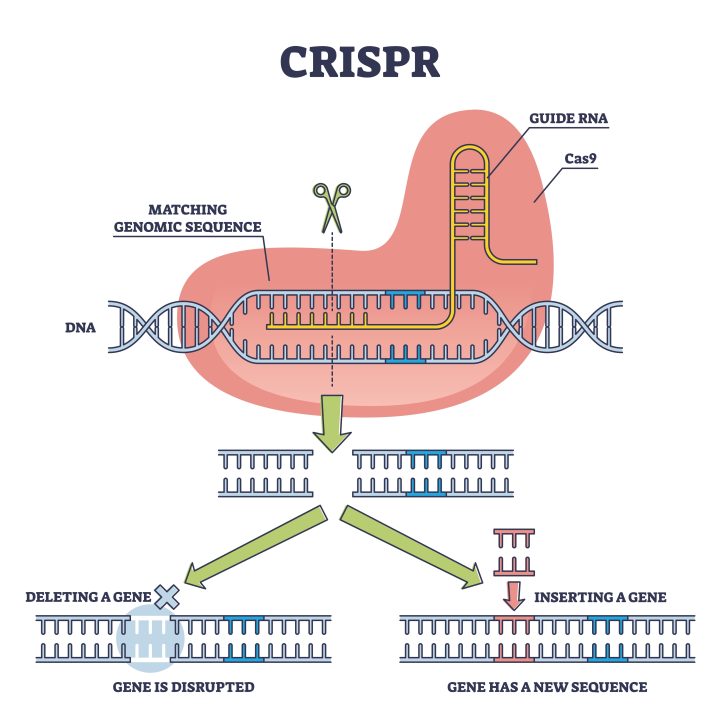In a recent article written in the Guardian, written by Ian Sample, he describes a groundbreaking new treatment that utilizes CRISPR gene editing to help patients effected by hereditary angioedema. Hereditary angioedema, also known as HME, is a rare disease that effects roughly 50,000 people. It is caused by a mutation in the C1 inhibitor gene which causes an overproduction of the protein kallikrein. This in turn causes a build up of the protein bradykinin which is responsible for leaky blood vessels and swelling. This swelling can be life altering and potentially life threatening.
The article describes medical trials done by Dr. Hilary Longhurst at the University of Auckland. These trials were extremely successful. After undergoing a single dose of this permanent gene therapy many patients were able to come off long term medication which often come with many side effects while being less effective. Scientists utilized CRISPR to create "nanolipids" which were administered to patients. These "nanolipids" enter liver cells and prevent the kallikrein gene from over producing bradykinin which stops swelling.
Despite the success of this ground breaking treatment, there is one major downside. One-shot genetic treatments range in price from 1 million to 2 million dollars. This makes treatment extremely exclusive to wealthy patients and countries.
In my opinion this article is important because it describes the possibility of curing an extremely debilitating disease. Despite the high cost, I am hopeful that continued research and adoption of genetic medical procedures will make these treatments more accessible to everyday people.

No comments:
Post a Comment